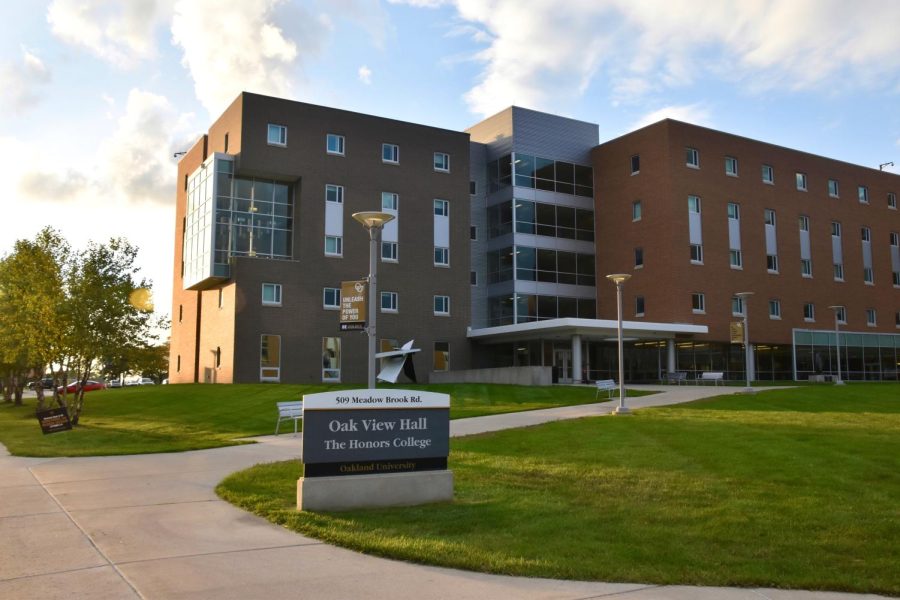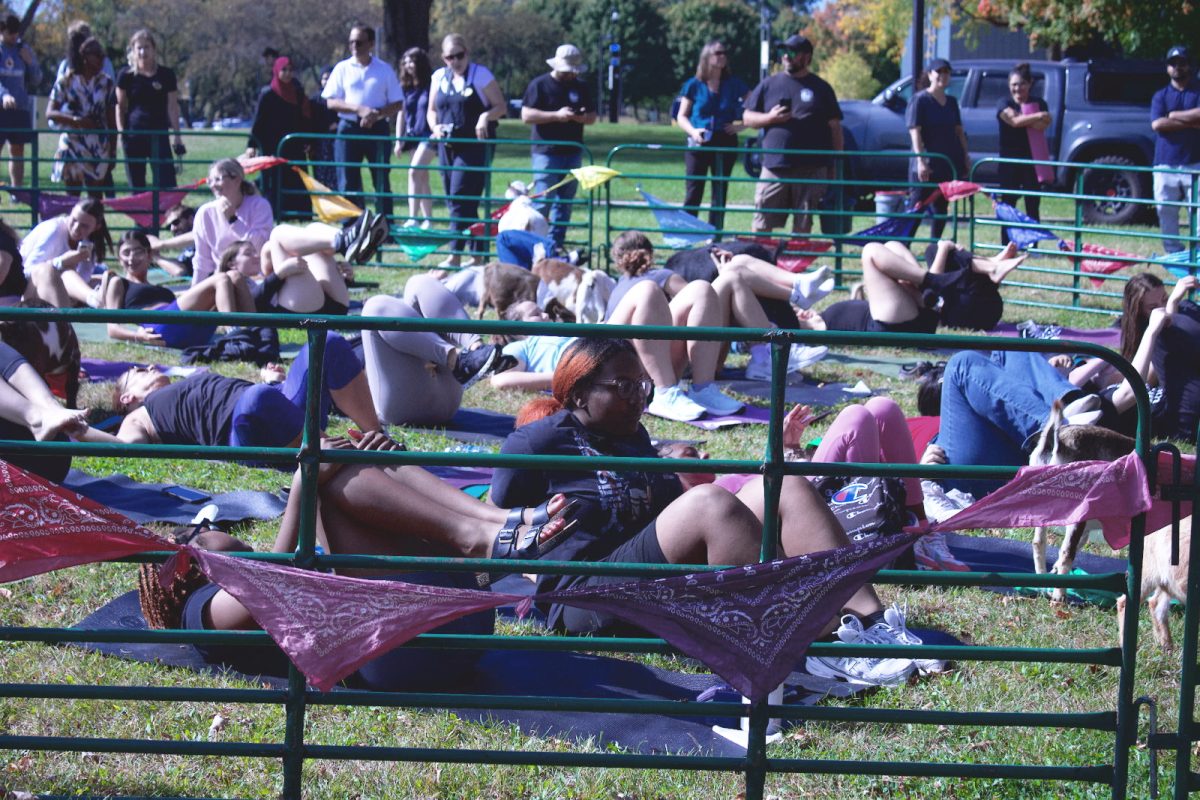Amidst recent uncertainties in higher education, on June 27, the Oakland University Board of Trustees (BOT) held a summer meeting to discuss the impact of national policies on the university, approve the 2025-26 budget and a Smart Manufacturing M.S.
Ora Hirsch Pescovitz, OU president, kicked off the meeting by congratulating the more than 2000 2025 graduates. Pescovitz highlighted the fact that 92% of OU students come from Michigan and more than 95% of those employed stay in the state, earning 9% more than graduates from the region.
President’s Report
The university president then tackled the uncertainties created by the current condition of federal funding and the impact of state funding on OU.
“We build our budget with what we know, but recognizing that there are uncertainties,” Pescovitz said. “The areas that we’re concerned about, and again, this is a changing target, are Pell Grant eligibility [and] Grad PLUS loans.”
If passed in July, the One Big Beautiful Bill would reduce Pell Grant eligibility for many low-income students by increasing the credit hour requirements and reducing the student aid index necessary for the grant. The legislation could also eliminate Grad PLUS loans in an effort to “curb over-borrowing and force universities to rein in tuition,” Kaplan law firm explained.
Federal risk-sharing would also be a concern, Pescovitz explained, since universities would be expected to pick up the debt of students who default on their loans. Medicaid was the fourth main point of concern, “because the medical school, their budget is heavily reliant on Medicaid dollars,” Senior Vice President for Finance & Administration, Stephen Mackey, said.
Without the state’s final decision on the higher education budget, the university president introduced the recommendations for the 2025-26 budget.
“The governor has recommended a 3.1% increase to higher ed across the board plus a 1% one-time increase,” Pescovitz said. “The Senate has passed a bill recommending a 2.1% across the board increase to all of the universities, plus a 1% one-time across the board increase.”
The House recommended a 3.1% decrease across the board, including a 65% decrease in funding specifically to the University of Michigan and an 18.3% decrease to Michigan State University.
Items for Consideration/Action
A new Master of Science degree in Smart Manufacturing was approved, enabling graduate students to gain expertise in data connectivity, digital twins, data analytics and the simulation of manufacturing systems.
“We developed this program based on the government’s push, the industry needs and also the interest from the students,” Quian (Beth) Zou, Associate Dean of the School of Engineering and Computer Science, said. The 32-credit program, which is also one of five in the country, will open job opportunities at Boeing, Siemens and Ford – among other military contractors.
Mackey then presented a data center request for proposal and predevelopment agreement to diversify the university’s revenue.
“The opportunity that we have is adjacent to the DTE substation,” Mackey said. “We’ll also be relocating Oakland’s data center and, in turn, open up research space in Dodge Hall for us to expand our research portfolio.”
The proposed data center will be placed on parking lot 35, behind Hillcrest Hall and has already attracted the attention of 32 private firms.
“We have potential for smart campus technology, artificial intelligence, research, digital learning, experiential learning, internships,” Mackey said. “Also, jobs for our students and for our local economy, and then also this feeds into our economic impact within the region.”
Fiscal Year 2025-26 General Fund Budget and Tuition Rates
The BOT approved a $318,060,735 budget for the 2025-26 academic year, the Oakland University News reported. The 4.5% increase in the undergraduate tuition rate was also approved alongside the 3.99% increase for graduate students.
“This year, a 4.5% [increase] equates to $25.75 per credit hour, which equates to approximately $770 for the year for the students per semester,” Mackey said.
The budget will direct $10 million to salaries and benefits, $1.1 million to miscellaneous expenditures like utilities, fuel, license agreements, software, etc. Finally, $1.6 million will go to strategic initiatives like credit hour production.
“We have a slew of scenarios that we’ve developed in our office that would deal with all kinds of different scenarios that could happen,” Mackey said. “Some of these things we’ve planned for are disruption or changes to the Pell Grant, as the President mentioned, changes to federal student loan programs, as the President has mentioned, and also cash flow delays from federal sources.”
Joshua Kobus and Xavier Iriarte were honored as student liaisons, Joe Jones was appointed to continue his role as the BOT Chair and Trina Scott was appointed Vice Chair. The meeting was adjourned with no further comments from the public.








